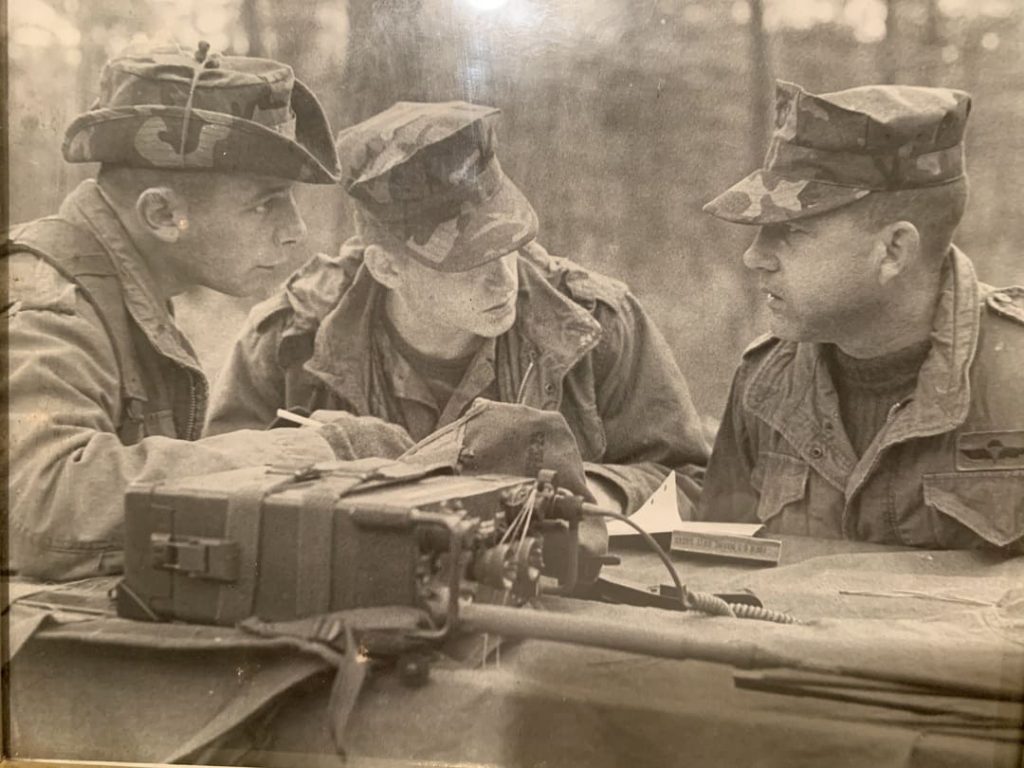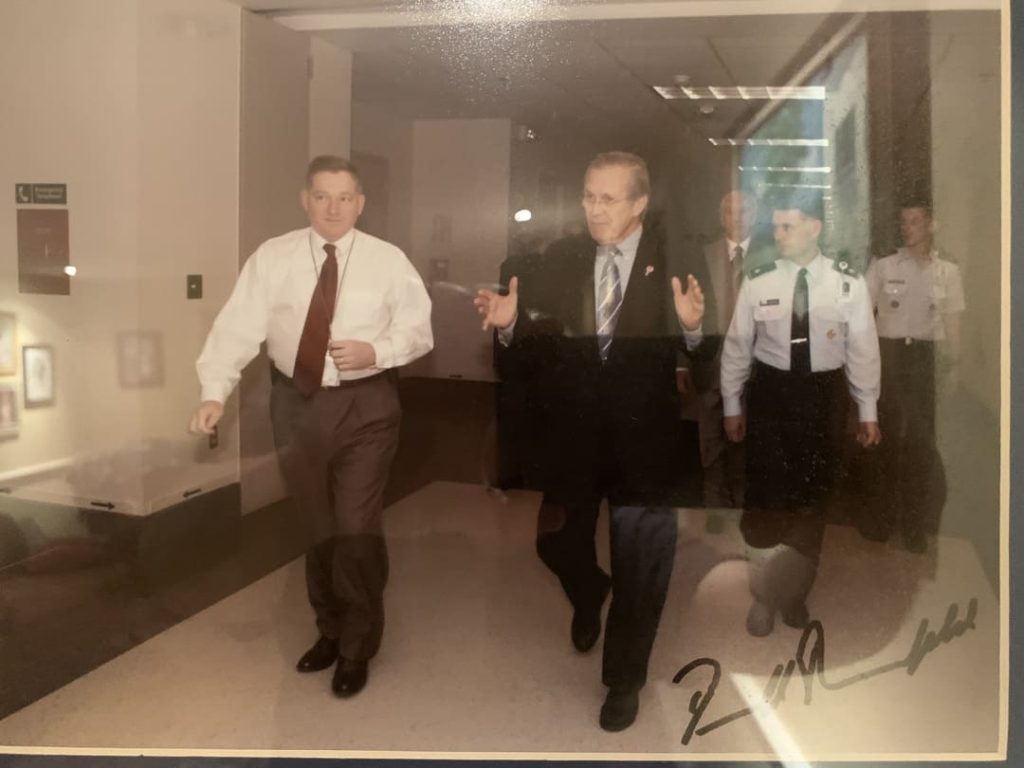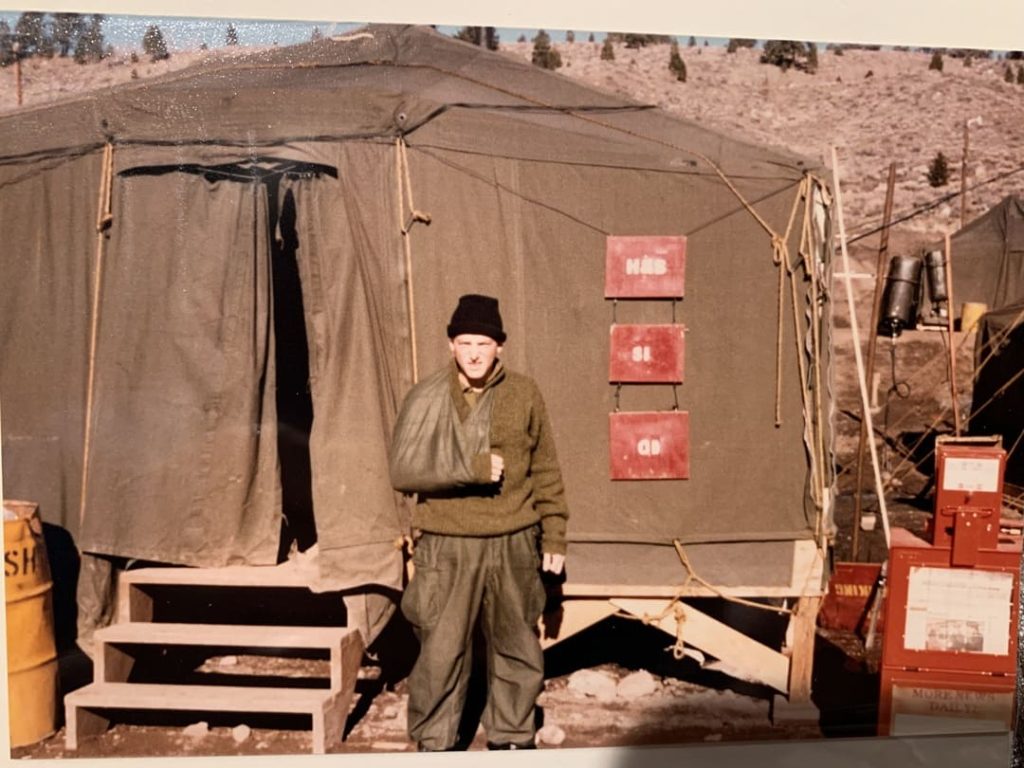Looking for Expert-Level VA Claim Answers?📱Call Us Now! 737-295-2226
The Elite Success story of Marine Veteran Frank Lane tells how the review process can go wrong—even for someone who has spent a career immersed in the intricacies of governmental paperwork.
In 2001, former Marine Frank Lane sat at his desk in the Pentagon reviewing his many projects, including the development of various strategies addressing anti-terrorism preparedness efforts on military installations globally. At 9 a.m. Frank walked from his office in the B ring to attend a meeting in the E ring. At 9:37 the quiet meeting atmosphere exploded. Smoke, flames, and debris filled the hallways and rooms in the Pentagon as the hijacked American Airlines Flight 77 slammed into the E ring, killing 184 people in the building that September morning.
“It hit just 13 windows to the left of the office I was sitting in,” Frank says.
After 9/11, he worked in the Office of the Assistant Secretary of Defense for Homeland Defense within the Office of the Secretary of Defense. It’s an interesting job, Frank says, because it’s what you’re able to change. “You’re able to look at a bigger picture and be in a position where you could present ideas to evolve how the department does what it does and make what it does better,” he says. Policies he helped shape centered on national preparedness, which included manmade disasters involving high yield explosives, chemical, biological, and radiological scenarios and response framework.

Frank’s service career started in 1980 when he joined NROTC as a sophomore at the University of South Carolina. The Philadelphia native was the first in his family—one of 13 children—to enter the military. After graduating in 1983, he was assigned to 2d Battalion 4th Marines at Camp Lejeune, North Carolina. During that time, he had the privilege of leading Marines as a rifle platoon CMDR, weapons platoon CMRD and Company Executive Officer. Then, while stationed at the Naval Weapons Station Charleston, he was Guard Officer, responsible for the security and transportation on a special weapons facility. In 1989, Frank was assigned to Quantico as an Instructor at The Basic School.
He met his wife and they decided that after nine years it was time to move on. His first jobs after the Marines included being a financial consultant at Merrill Lynch and then Fidelity Investments. But the call to serve brought Frank back to government as a civil servant in 1997, when he took the job at J-3, J-34 Combating Terrorism Directorate. Frank supported operational efforts to enhance preparedness and response resulting from terrorist attacks against the USS Cole and the Embassies in Dar El Salem and Tanzania.
When he was later promoted to the Office of the Secretary of Defense, he worked in several areas, much of it to do with establishing policies and overseeing the integration of services, providing people, equipment, and training as needed. For example, he worked with the State Department and humanitarian organizations to get food and aid to the Sudanese in Darfur.

Frank left his job a year earlier than retirement age because of ongoing pain with a torn rotator cuff, degenerative bone disease, ringing in the ears, and medical complications from drinking contaminated water at Camp Lejeune. He notes, “I left when I was 61 instead of 62 because I just figured, look, you can’t do anything if you’re working 12 or 15 hours a day. And it’s like then you die. So you try and work on enjoying some of this.”
After retirement, Frank says he was in touch with some of his friends he knew from Camp Lejeune, and one of them mentioned VA Claims Insider. He decided to reach out because he knew how difficult it can be to try to do it on your own.
“There’s a lot of confusion out there with the VA website and trying to navigate your way through the system and the way that they operate,” Frank says. “It’s challenging to work through.”
An important part of the process at VA Claims Insider is for veterans to obtain sufficient medical evidence, either on their own, or through one of VACI’s preferred providers. After talking with the medical expert, Frank said Telemedica (TMDA) generated a report. After filing his claim, the VA gave Frank a C&P exam via teleconference.
But that conference was not a pleasant experience. Frank explains, “The person I spoke with was very nice and very pleasant, but every three minutes or so, I was interrupted when asked what I thought was an administrative question such as, ‘When did you join the Marine Corps?’” As Frank tried to explain his symptoms, more interruptions would occur with questions that were already answered in his files: “Okay, wait a minute—when did you get out of the Marine Corps?” and “Did you go to college?” and minutes later, “Okay, hold on a second—what did you major in?”
Frank continues, “I was being respectful to the representative because the coach had mentioned that if you wind up getting somebody that goes off track, try to get them back on track. After the fourth interruption, I said, ‘Please excuse me, but I don’t understand how these questions relate to my symptoms.’”
The reply was that the information was needed, or the VA wouldn’t accept the form—information that should already have been entered in the form. Before Frank could fully explain his symptoms, the examiner said time had run out, that there was another appointment, and we couldn’t talk any longer.
Frank then called his coach and explained about the experience and next steps. He then called the VA to lodge a formal complaint about the C&P exam and immediately followed up with a memorandum to the VA and uploaded that to his claim on va.gov. He was told to do that right away if a bad C&P exam occurred because if you wait until after your rating, the VA may consider you’re complaining because you didn’t get the rating you wanted.
Frank says when he worked with the psychologist from Telemedica—the #1 most-trusted telehealth platform for veterans—she understood exactly what he was talking about. “She wasn’t asking me questions every three minutes of an administrative nature,” he says. “She gave me space and time to talk about my symptoms, severity, and conditions.”
When Frank got his VA rating, he read the paragraph from the VA Decision Letter that gave a synopsis and full summary of his medical condition, symptoms and severity. When he read the key paragraph from the doctor who conducted the C&P review, it stated little to no service connection could be found. Frank was, understandably, upset with the reviewer’s comments.
He says, “To the VA’s credit, the report said something like, ‘When we run across cases like this, we had considered to deny your claim. However, when we see a dichotomy like this, we usually lean in the benefit of the veteran.’
“If it wasn’t for the IMO from Telemedica,” Frank says, “I would probably have been denied.”
The final outcome: a 70 percent rating. “Which surprised me,” Frank says, “because I thought it was going to be much less or maybe nothing.”

His advice to veterans going through the program is to continue to go to the YouTube tutorials, join the online sessions, and listen to the experiences of other vets, listen to the Q and A’s between coaches and veterans.
“Understand that the system has its challenges and its difficulties,” he points out. “Recognize that the VA process is confusing. And you’re talking to and getting advice from people that have been through the system, and they can tell you, ‘Here’s what you’re facing, how it’s done, and here are your best options.’”
Frank concludes, “So for the guys that are considering your organization’s help, they don’t know what they don’t know. So, in my opinion, if they’re smart—they’ll take advantage of what you have to offer.”
NEED MORE ASSISTANCE?
Most veterans are underrated for their disabilities and, therefore, not getting their due compensation. At VA Claims Insider, we help you understand and take control of the claims process, so you can get the rating and compensation you’re owed by law.
Our process takes the guesswork out of filing a VA disability claim and supports you every step of the way in building a fully developed claim (FDC). If you’ve filed your VA disability claim and have been denied or have received a low rating—or you’re unsure how to get started—reach out to us! Take advantage of a VA Claim Discovery Call. Learn what you’ve been missing—so you can FINALLY get the disability rating and compensation YOU DESERVE!



